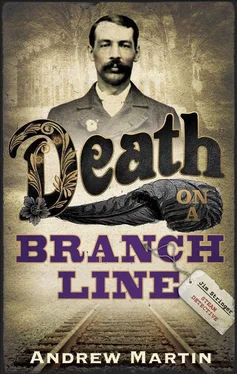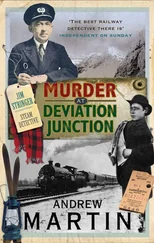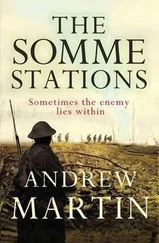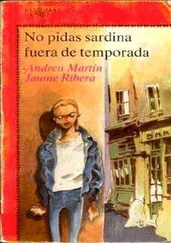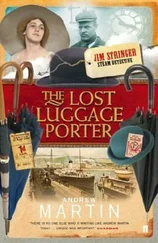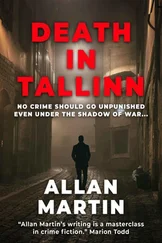Andrew Martin - Death on a Branch line
Здесь есть возможность читать онлайн «Andrew Martin - Death on a Branch line» весь текст электронной книги совершенно бесплатно (целиком полную версию без сокращений). В некоторых случаях можно слушать аудио, скачать через торрент в формате fb2 и присутствует краткое содержание. Жанр: Классический детектив, на английском языке. Описание произведения, (предисловие) а так же отзывы посетителей доступны на портале библиотеки ЛибКат.
- Название:Death on a Branch line
- Автор:
- Жанр:
- Год:неизвестен
- ISBN:нет данных
- Рейтинг книги:5 / 5. Голосов: 1
-
Избранное:Добавить в избранное
- Отзывы:
-
Ваша оценка:
- 100
- 1
- 2
- 3
- 4
- 5
Death on a Branch line: краткое содержание, описание и аннотация
Предлагаем к чтению аннотацию, описание, краткое содержание или предисловие (зависит от того, что написал сам автор книги «Death on a Branch line»). Если вы не нашли необходимую информацию о книге — напишите в комментариях, мы постараемся отыскать её.
Death on a Branch line — читать онлайн бесплатно полную книгу (весь текст) целиком
Ниже представлен текст книги, разбитый по страницам. Система сохранения места последней прочитанной страницы, позволяет с удобством читать онлайн бесплатно книгу «Death on a Branch line», без необходимости каждый раз заново искать на чём Вы остановились. Поставьте закладку, и сможете в любой момент перейти на страницу, на которой закончили чтение.
Интервал:
Закладка:
I turned over in bed, and the wife was sitting up.
She was talking to Mervyn, who stood in the doorway.
‘It’s four o’clock, Mervyn,’ the wife was saying to the boy.
I too sat up, and the boy glanced at me and then looked away, his eyes roving about the room as though the purpose of his visit had been to inspect it.
‘Mervyn,’ I said, ‘they’ve shot your dog.’
‘ Who?’ he said, quickly.
‘That’s just what I want to know.’
He stood silent. In spite of his question, he knew who’d done it.
‘Mervyn,’ I said, ‘Master Hugh will be hung at eight o’clock.’
‘I’ll not speak to you,’ he said, ‘but I’ll speak to your missus.’
Swiftly and silently, as though she’d known all along that it would fall to her to hear out the boy, Lydia climbed out of bed and, taking the boy’s hand, led him into the corridor — and whatever was said didn’t take long for she was back within a matter of seconds.
Chapter Thirty-Two
I dare say we ought to’ve woken Mr and Mrs Handley rather than making off at just gone four-thirty in the morning with their son in tow and the rain streaming down. But whereas the difficulty before had been to make Mervyn Handley speak, the difficulty now was stopping him.
‘It were all over the telegram not sent,’ he kept saying, as we walked past the row of low, bent cottages that stood black against the greyness of the dawn.
‘And it was the porter, Woodcock, who Sir George asked to send it?’ I asked again, although I thought I had this clear.
‘It were up to ’im, aye,’ said Mervyn. ‘It were ’is job, only he’d booked off for t’ day, an’ ’e wouldn’t do it.’
‘And he cheeked Sir George?’
‘I should just think ’e did, aye. Give ’im a right mouthful.’
‘But this is all hearsay?’ I said, as we passed in front of the cottages. ‘You what?’ said Mervyn.
A thin line of smoke went up contrary to the rain from one of the chimneys.
‘You know of this,’ I said, ‘but you never saw it.’
‘I saw what come next,’ said the boy. ‘Not likely to forget it, either.’
‘Let’s be right now,’ I shouted over the rain. ‘Sir George threatened to write — ’
The boy nodded eagerly, saying, ‘Letter of complaint, like.’
‘Where to?’
‘Railway brass at York.’
‘Did he mean to complain about Woodcock or Hardy?’
‘Why, both,’ said Mervyn.
‘Hardy,’ I said, ‘… had he got across Sir George before?’
‘No,’ said Mervyn. ‘You en’t listening. Woodcock ’ad. Woodcock would always give trouble, and Hardy wouldn’t do owt agin ’im.’
‘Because he was scared of him.’
‘Scared? I’ll say ’e was.’
‘And Hardy was more scared of this Woodcock than he was of Sir George,’ put in the wife.
We were now crossing the station yard. The trees thrashed under the rain, and the station looked like nothing more than a camp in the woods. It had been important to have the boy’s story clear by the time we reached it, and this had meant he should come along with us, but I did not want a child put in the way of what might happen next.
‘Look, you mustn’t come up,’ I said.
So he remained in the yard under the slanting rain, with the wife standing beside him, and not quite knowing — from the looks of things — whether to take his hand.
I walked on until I gained the platform boards of the ‘up’. The tracks and signals, and the rattling sign reading ‘Waiting Room’, seemed nothing but a bluff. One light burned low in the roaring greyness — it spilled through the booking office doorway. I walked up to it, and Hardy was there in full station master’s uniform, watching the spread of tiny tin soldiers and scratching his head. As I looked on, he leant forward and swiftly changed the position of some of the men. In 1884, the British square had broken, and the station master was setting that to rights again. He made his move, and stood back. Our eyes met.
‘You murdered Sir George Lambert,’ I said.
He looked at me with curiosity — in a daze at having been dragged from Africa back to Adenwold.
‘You murdered Sir George Lambert,’ I said again, holding up my warrant card this time. ‘You went to see him at the Hall over the matter of a telegram. I don’t know what the telegram was about. It hardly matters. He’d wanted it sent, and your porter, Woodcock, wouldn’t do it. Sir George called you up to the Hall. He was drinking, getting ready to go out shooting rabbits, and he was in a rage, having been arguing with his son. You thought you’d be well in with him since he’d taken so strongly against the previous bloke in your job, but he’d had bother with Woodcock before, and he wanted you to stand him down. He was giving you a hot time of it. You made out you’d do it but you knew you hadn’t the nerve. Then I’d say this happened… You took a shotgun from the Hall. There was no shortage of them there. You went into the woods and called to Sir George when you saw him alone. You fired on him. You were wearing gloves at the time. You then came on Hugh Lambert, lying drunk in the woods, and you left the shotgun by his side.’
Hardy continued to study the soldiers.
‘They walked through a fire of light, these men,’ he said, looking up from the leaden figures. ‘… I read that in a book about them.’
I saw the alphabetic dial of the ABC machine behind him. That was the contraption by which Sir George had wanted his message sent — most of the small stations on the North Eastern had them. They were simple to operate and required very little training, unlike the Morse system of telegraphy. There had been no telephone in the Hall until lately. Sir George had been dependent on the station for sending messages.
But now the wires were down, and in nearly three hours’ time Master Hugh would be executed for Hardy’s crime unless a message was sent.
‘… A fire of light,’ Hardy said again. Then, rapidly, ‘Who do you have your story from?’
‘The boy,’ I said. ‘Mervyn Handley. He was in the woods — he practically lives in the bloody woods — and he saw you fire. You know very well that he did. You saw him yourself.’
‘Oh well,’ said the station master, with an intake of breath, ‘I don’t say it isn’t right.’
‘He was scared of speaking out. He was no doubt threatened.’
‘Not by me,’ said Hardy. ‘I’m not the type to threaten.’
‘You’re more the type to be threatened,’ I said.
‘I have my own boy,’ said Hardy.
‘You have a son?’
‘Here,’ said Hardy, and his fat finger shook as he pointed at one of the figures on the board: the drummer boy. ‘He was the hardest to paint, you know.’
‘Why?’ I said, although I was thinking of the cut wires. Was it possible that the Chief and Usher had restored them?
‘Oh,’ said Hardy. ‘Well… because he’s the smallest.’
No, I thought, the Chief and Usher would not have restored the connection, with John Lambert still at large and threatening to communicate with foreign agents.
I eyed Hardy.
‘Did you hear us talking in the woods to Mervyn this morning? Did you shoot his dog?’
He shook his head, which set his cheeks wobbling.
‘Why do you have these soldiers?’
‘To set an example,’ he said. ‘Help me play a brave man’s part.’
He sighed.
‘To bring me up to — ’
‘A confession?’ I put in. ‘Well, you’ve left it rather late, but will you own to it now? The boy will stand to what he saw in court, you know.’
(Would he really? I hadn’t put the question to Mervyn, and he evidently went in terror of police and courts.)
Читать дальшеИнтервал:
Закладка:
Похожие книги на «Death on a Branch line»
Представляем Вашему вниманию похожие книги на «Death on a Branch line» списком для выбора. Мы отобрали схожую по названию и смыслу литературу в надежде предоставить читателям больше вариантов отыскать новые, интересные, ещё непрочитанные произведения.
Обсуждение, отзывы о книге «Death on a Branch line» и просто собственные мнения читателей. Оставьте ваши комментарии, напишите, что Вы думаете о произведении, его смысле или главных героях. Укажите что конкретно понравилось, а что нет, и почему Вы так считаете.
